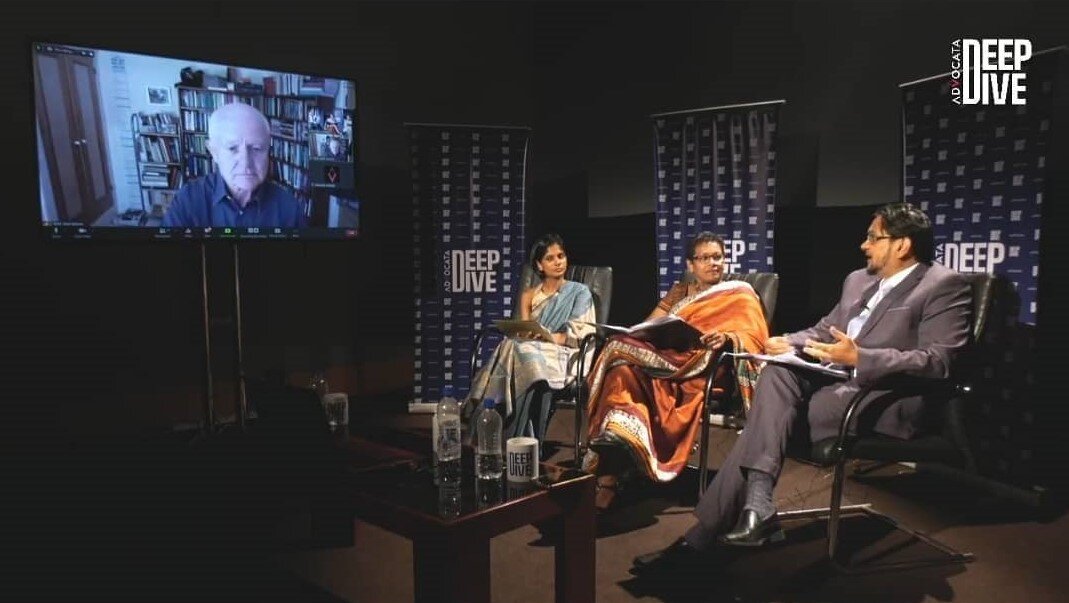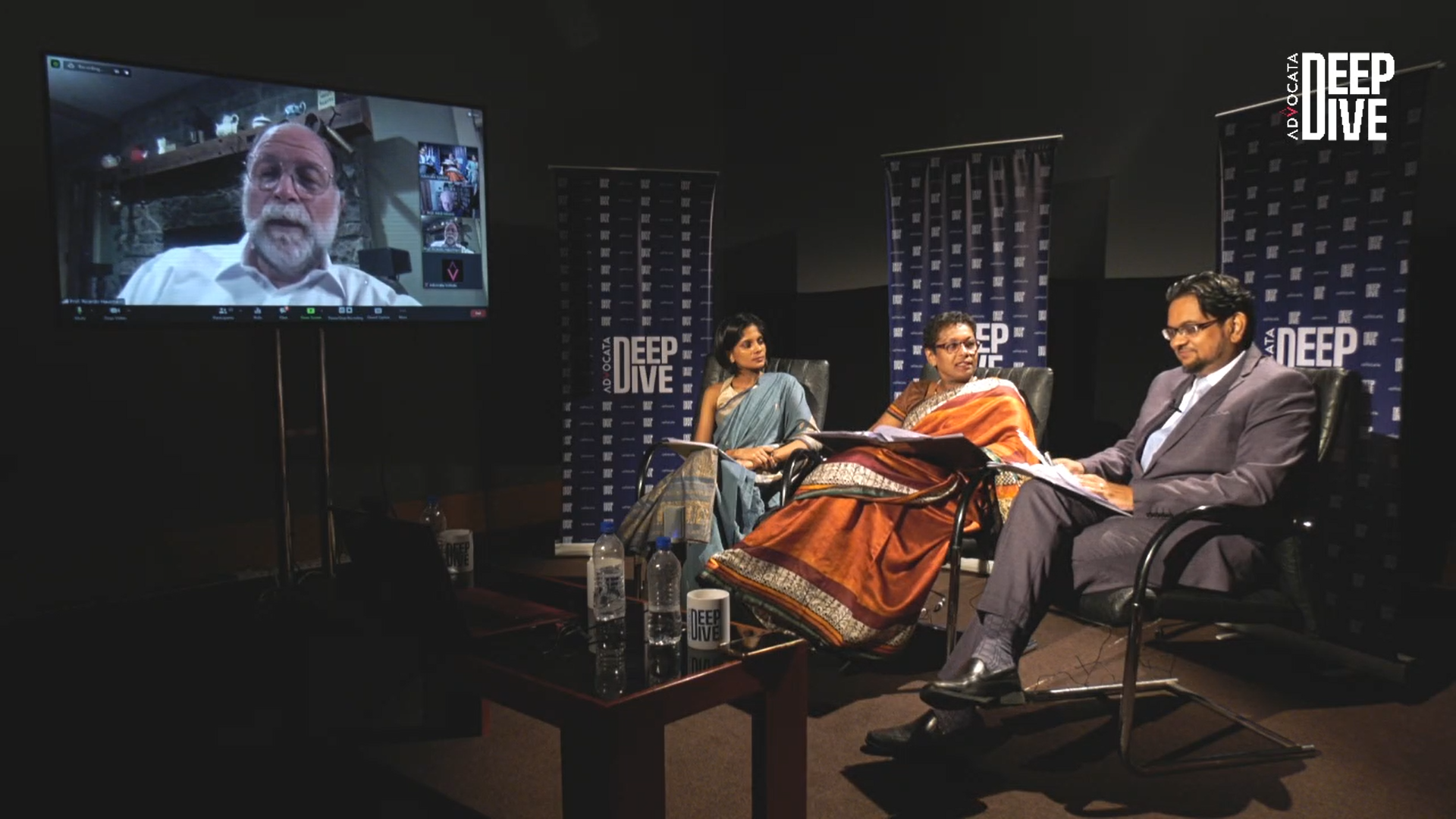NEWS RELEASE
Originally appeared in the Daily FT, Ceylon Today, Lanka Business Online and The Morning
The Advocata Institute DeepDive Series on "How can we improve Sri Lanka's Debt Sustainability?"
A panel of eminent economists urged that the Government take credible and decisive action to prevent a painful debt crisis in Sri Lanka. Although immediate debt payments can be met, to build credibility, a medium-term plan is required. This was also emphasised by Dr Nishan De Mel, Executive Director of Verite Research, who made the point that "We think that Sri Lanka does have flexibility, but the price of flexibility is credibility. If you cannot establish credibility, the flexibility erodes very quickly."
The rating agency Moody's downgraded Sri Lanka's rating to Caa1 from B2 signaling issues with the country's debt sustainability. This year Sri Lanka's foreign debt service forecast is USD 4208.6 million. The central government debt to GDP ratio at present stands at about 86.8% with some estimates expecting the figure to increase.
Prof Ricardo Hausmann from Harvard University said the more important measure is to look at the interest burden to tax revenue as opposed to the commonly cited debt to GDP ratio. "I think it's unfortunate that people talk about debt to GDP ratio, instead they should be talking about interest burden to tax revenue ratio. Japan has a debt to GDP ratio of 230%, and it's all contracted at zero interest rate. 230% at zero interest rate, you have to raise zero taxes to pay for that. 86% debt at 7% interest rate, you're talking about almost 6% of GDP in interest burden compared to Japan that has to pay zero" Sri Lanka has one of the worst interest burdens to tax revenue measures in the world according to Professor Hausmann.
Prof Mick Moore, who has done work on Sri Lankan taxation systems explained that the situation has worsened due to a revenue problem and urged the need for a collective realisation of the necessity of higher taxation to meet debt servicing requirements. He mentioned that "If there is going to be a social contract drawn, built up, it's going to have to be a social contract around the crisis. If we do not do something about tax-raising, like Prof Hausmann said, the big bad wolf [of the debt crisis] is going to come."
These views were expressed at the event "Deep Dive", organised by the Advocata Institute that aims to bring focus on Sri Lanka's biggest policy challenges. The event was moderated by Dr Roshan Perera, Former Director Risk Management Department of the Central Bank of Sri Lanka, and Aneetha Warusavitarana, Research Manager, Advocata Institute. As a precursor to the event, Advocata released a primer on debt sustainability with the aim of helping Sri Lankans understand the topic.
The recording of the discussion can be found at https://www.advocata.org/ to get a comprehensive understanding of debt sustainability and how it affects Sri Lanka's economy and livelihoods of all Sri Lankans.





